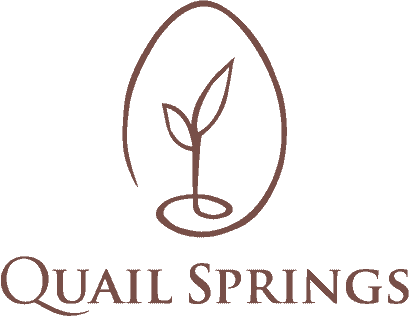October 7-11, 2015
with instructors
Craig Sponholtz – Watershed Artisans, Inc.
Brenton Kelly – Quail Springs’ Land Steward, Farm Advisor & Restoration Program Director
Neil Bertrando – R T Permaculture Designer & Loping Coyote Farm Manager
Quail Springs Permaculture invites you to learn about what constitutes regenerative landscape design & restoration. Craig’s workshops offer an understanding of the science of water on the landscape along with a design aesthetic and land ethic that exemplifies the following quote by Aldo Leopold.
“A thing is right when it tends to preserve the integrity, stability, and beauty of the biotic community. It is wrong when it tends otherwise.”
This 5-day Regenerative Water Harvesting & Land Restoration training offers hands-on experience in the assessment, design and construction of an on-going restorative and regenerative watershed project with intensive immersion and experiential training in:
- Healing degraded land by harvesting runoff
- Reading the landscape and making informed decisions
- Recognizing the symptoms and causes of degraded land
- Identifying regenerative natural processes
- Understanding how humans affect and are affected by the landscape and watershed
- Designing resilient solutions
- Understanding management options for degraded land
- Deciding what is doable and what should be done first
- Planning and preparing to complete a successful project
- Maintaining a project and ensuring its long-term success
Participants will learn skills needed to do high quality work that will stand up to natural processes over time. These skills will serve a wide spectrum of people and professions, from backyard restorationists to farmers and land managers. Craig Sponholtz believes in doing it right the first time and spends extra time with students on projects to ensure that they understand the subtleties of the work being done. Emphasis on quality ultimately fosters immense pride of a beautiful job well done.
Craig Sponholtz’s Applied Watershed Restoration courses are a must. I was very impressed with the thoroughness, hands-on learning, and Craig’s deep knowledge – based on years of real-life experiences. The strategies taught are simple and effective. They build on natural patterns so you work with natural processes not against them. This way nature does the bulk of the work once the structures are in place. I highly recommend these courses for anyone working with the land and water. – Brad Lancaster, author of Rainwater Harvesting for Drylands and Beyond~~~~~~~~~~~
Course Cost: $750 (includes camping and meals)
$650 Early Bird discount: September 1, 2015
Contact with questions: Danielle Brehmer, [email protected], 805-886-7239
* Financial aid in the form of payment plans and limited partial scholarships by application. Inquire early.
 Craig Sponholtz, Watershed Artisans, Inc.
Craig Sponholtz, Watershed Artisans, Inc.
Craig founded Dryland Solutions, Inc. in 2003, renamed Watershed Artisans, Inc. in 2014, and continues to design and implement watershed restoration projects throughout the Southwest.
Craig has earned a Masters Degree in Agro-Ecological Restoration from Prescott College and a Permaculture Designer’s Certificate at the Permaculture Research Institute in Australia. He is an expert heavy equipment operator specializing in low impact techniques and the creation of artistic in-stream structures.
Craig spent a decade expanding his knowledge of landscape processes by working throughout the western U.S. with the USDA Forest Service in wildland fire management and prescribed fire use. Craig has had comprehensive training in numerous stream and wetland restoration methods including natural channel design and induced meandering and continuously learns new techniques to incorporate into his work and teaching.
Craig teaches land and watershed restoration, passive water harvesting and erosion control techniques internationally and strives to foster beneficial relationships between people and the watersheds they live in by sharing the practical trials, tribulations and insights of his own work. Craig has used two decades of hands-on experience and numerous collaborations with masters in the field to develop must-know principles that ensure water-related projects are practical, economically viable and harmonious with natural processes.


